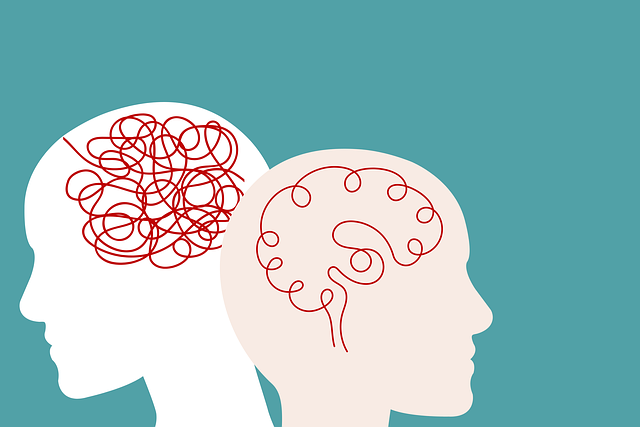Social skills training is a critical component of therapy for young adults, adolescents, and teens with mental health conditions. Tailored programs address isolation, teaching emotional regulation, effective communication, assertiveness, and healthy coping strategies to enhance self-esteem and relationships. These initiatives incorporate interactive activities, peer support networks, and crisis intervention guidance to build resilience and improve overall well-being. Structured sessions focus on emotional intelligence, cultural competency, and practical skills for navigating social situations comfortably, benefiting those with anxiety, depression, low self-esteem, and conditions like social anxiety or autism spectrum disorder. A holistic approach, including journaling, role-playing, and culturally sensitive materials, empowers adolescents to manage stress and improve their social lives.
Social skills training is a powerful tool for improving mental health outcomes in young adults, adolescents, and teens. This comprehensive guide explores how understanding social interaction impacts overall well-being, particularly in navigating the challenges unique to this demographic. We delve into evidence-based therapy approaches that foster better communication and relationship-building abilities, offering practical tips for integrating these skills into daily life for a more fulfilling existence.
- Understanding Social Skills and Their Impact on Mental Health
- Identifying Challenges in Adolescent and Teen Populations
- The Role of Therapy in Enhancing Social Interaction Abilities
- Evidence-Based Approaches for Effective Training Programs
- Practical Tips for Integrating Social Skills Training into Daily Life
Understanding Social Skills and Their Impact on Mental Health

Social skills are a crucial aspect of our daily lives, enabling us to connect, communicate, and build meaningful relationships. For individuals with mental health conditions, such as young adults and adolescents, understanding and honing these social skills can significantly impact their overall well-being. Many mental health challenges can isolate people, leading to feelings of loneliness and exacerbating existing symptoms. Therapy for young adults often includes teaching essential social skills to navigate interpersonal interactions confidently.
This process involves recognizing and managing emotional responses during social exchanges, a key component in improving emotional regulation. By learning effective communication techniques, individuals can express their needs and emotions healthily, fostering better connections. Additionally, social skills training can enhance self-esteem improvement by providing tools to assertiveness and build positive relationships. Crisis intervention guidance is also integrated into these programs to help individuals de-escalate challenging situations and promote healthy coping strategies.
Identifying Challenges in Adolescent and Teen Populations

Adolescent and teen populations face unique challenges when it comes to mental health and social skills development. This age group is often navigating a complex web of academic pressures, peer relationships, and identity formation, which can significantly impact their mental wellness. Many young adults struggle with anxiety, depression, and low self-esteem, making it crucial for them to acquire effective coping skills. Therapy for young adults, specifically tailored to address these issues, plays a vital role in empowering adolescents and teens to manage stress and overcome challenges.
The process of identifying and addressing these problems requires a sensitive approach. Stress management workshops designed for this demographic often incorporate interactive activities and peer support networks, fostering an environment where individuals can openly discuss their experiences. Organizations specializing in mental wellness for young adults are well-equipped to offer specialized programs that focus on building resilience, enhancing communication skills, and teaching effective coping strategies. By providing these adolescents with the tools they need, they can better navigate social interactions and develop healthier ways of managing stress, ultimately improving their overall mental health.
The Role of Therapy in Enhancing Social Interaction Abilities

Social skills training is a vital component of mental health care, especially for young adults, adolescents, and teens who may struggle with social interaction due to various conditions. Therapy plays a pivotal role in enhancing these abilities by providing a safe space for individuals to learn, practice, and master social cues and behaviors. Through structured sessions, therapists can guide clients in developing essential communication skills, improving active listening, and understanding non-verbal signals, which are crucial for fostering meaningful connections with others.
Many mental health education programs design their curricula around these principles, incorporating confidence-boosting activities and self-care practices to support healthy social development. By addressing social anxiety, assertiveness issues, or even autism spectrum disorder, therapy enables individuals to navigate social situations more comfortably, improve their relationships, and ultimately enhance their overall well-being.
Evidence-Based Approaches for Effective Training Programs

In crafting evidence-based approaches for social skills training programs aimed at mental health conditions in young adults, adolescents, and teens, therapists must leverage strategies that foster emotional intelligence (EI). EI involves recognizing and managing one’s own emotions, as well as understanding and empathizing with others. Incorporating mind over matter principles can significantly enhance these training sessions. By teaching participants to reframe negative thoughts and focus on positive outcomes, they gain tools to navigate social interactions more effectively.
Moreover, healthcare provider cultural competency training is integral to these programs. Recognizing and respecting diverse cultural backgrounds ensures that training methods are inclusive and relevant, addressing the unique needs of a varied population. This holistic approach, combining emotional intelligence, mind over matter principles, and cultural sensitivity, creates an environment where young adults, adolescents, and teens can develop robust social skills, ultimately contributing to their overall mental health and well-being.
Practical Tips for Integrating Social Skills Training into Daily Life

Integrating social skills training into daily life for young adults with mental health conditions requires a structured yet flexible approach. Start by breaking down interactions into manageable components, focusing on specific scenarios like initiating conversations, active listening, or adapting to different social settings. Incorporate role-playing exercises during therapy sessions, allowing individuals to practice these skills in a safe environment and receive immediate feedback.
Encourage self-awareness exercises between sessions to help adolescents and teens generalize learned behaviors. These can include journaling prompts about social experiences, reflecting on successes and challenges, and setting achievable social goals. Addressing cultural sensitivity in mental healthcare practice is also vital, ensuring that training materials and approaches are inclusive and respect diverse backgrounds. Mental illness stigma reduction efforts should accompany these practices, fostering an environment where individuals feel supported and understood during their journey towards better social functioning.
Social skills training plays a pivotal role in enhancing mental health outcomes for young adults, adolescents, and teens. By addressing specific challenges through evidence-based approaches, therapy can significantly improve their social interaction abilities. Integrating these techniques into daily life not only fosters better connections but also empowers individuals to navigate social situations with increased confidence. This comprehensive approach is crucial in supporting the overall well-being of this vulnerable population.









